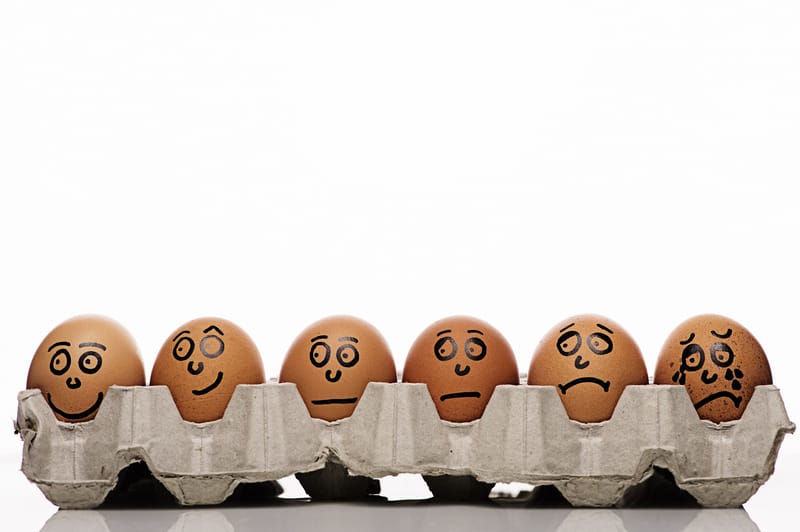There is nothing complicated about healthy eating. All you have to do is eat lots of fruit and vegetables, drink plenty of water and keep your hands out of the cookie jar. Easy peasy! Or is it? Today I share five common misconceptions about healthy eating and bust some popular food myths.
1. Carbs are off-limits
Many diets ban carbs, and if we are to believe some of Hollywood’s leanest, starch is your biggest enemy. But the truth is that carbohydrates aren’t bad for you. Yes, having eight slices of bread every day for breakfast and putting pasta on the menu five days a week won’t do your waist line any good, but when eaten in the right amounts carbs are good for you. Carbohydrates are our main source of energy. The UK National Health Service (NHS) suggests that a third of your diet comprise of starchy foods. Complex carbohydrates like the ones you find in brown bread and wholegrain products are better because they slowly release sugar into the bloodstream ensuring a steady supply of energy and they make you feel fuller for longer.
2. Late-night eating will make you fat
It is a common misconception that eating late in the evening or too close to bedtime will make you gain weight. The logic behind this myth is that the energy from your late-night dinner or bed-time snack will get stored as fat while you sleep, but that is not how it works according to research explained by the BBC. The body doesn’t care when you consume your calories. It only cares about how many calories you consume and just as importantly how many you burn. If you consume more calories than you burn you will gain weight. And if you burn more calories than you take in every day you will lose weight. It is that simple.
3. Frozen food isn’t as healthy as fresh food
Frozen food has a bit of a bad reputation and is often seen as a less healthy alternative to fresh food, but the truth is that frozen foods can sometimes be better for you than the real deal. Most frozen fruits and vegetables are frozen right after harvesting avoiding the deterioration that takes place during the time between harvest and purchase. It depends on the fruit or vegetable though. Research explained in Medical Daily shows for example that frozen carrots and soft fruits beat fresh ones while fresh broccoli and spinach beat their frozen equivalents.
4. All fats are bad
Carbs aren’t the only food molecules that wrongfully ended up on the healthy eating blacklist. Fats are right up there with them. But just like carbs not all fats are dietary supervillains. Yes, trans fats and saturated fats like the ones you find in packaged snack food and butter can indeed wreak havoc on your health and dress size, but monounsaturated and polyunsaturated fats are actually very healthy in moderation. Foods like olives, avocadoes, nuts and fatty fish are great for your heart and cholesterol levels and make a wonderful addition to any diet. Most recommendations limit healthy fat (avoiding unhealthy ones) consumption to around 20% to 35% of your total daily calorie intake. So there is nothing wrong with enjoying the fatter things in life.
5. Eggs are bad for you
While it is true that eggs contain a high amount of cholesterol – one medium-sized egg yolk contains around 225 milligrams of cholesterol – they are not necessarily bad for your health when eaten in moderation. On the contrary even. Eggs are a great source of protein and vitamin A, D and E. Some research by Dr Juliet Gray, a nutritionist, and Dr Bruce Griffin, from the University of Surrey, even recommends lifting the cap on the level of healthy egg consumption, and while the National Health Service (NHS) in the UK is critical of this report it does mention the dietary benefits of eggs. The NHS does point out that Dr Gray and Dr Griffin are both independent advisors to the British Egg Industry Council and that no sources of funding are declared in the publication.
If you have been advised by your doctor to watch your cholesterol intake or just want to cut back on calories you can simply have your eggs without the yolk. There is no cholesterol in egg whites after all, so by leaving out the yolk you will still be able to enjoy your eggs without having to worry.

Melissa Van Roosbroeck is a style and fashion writer.



